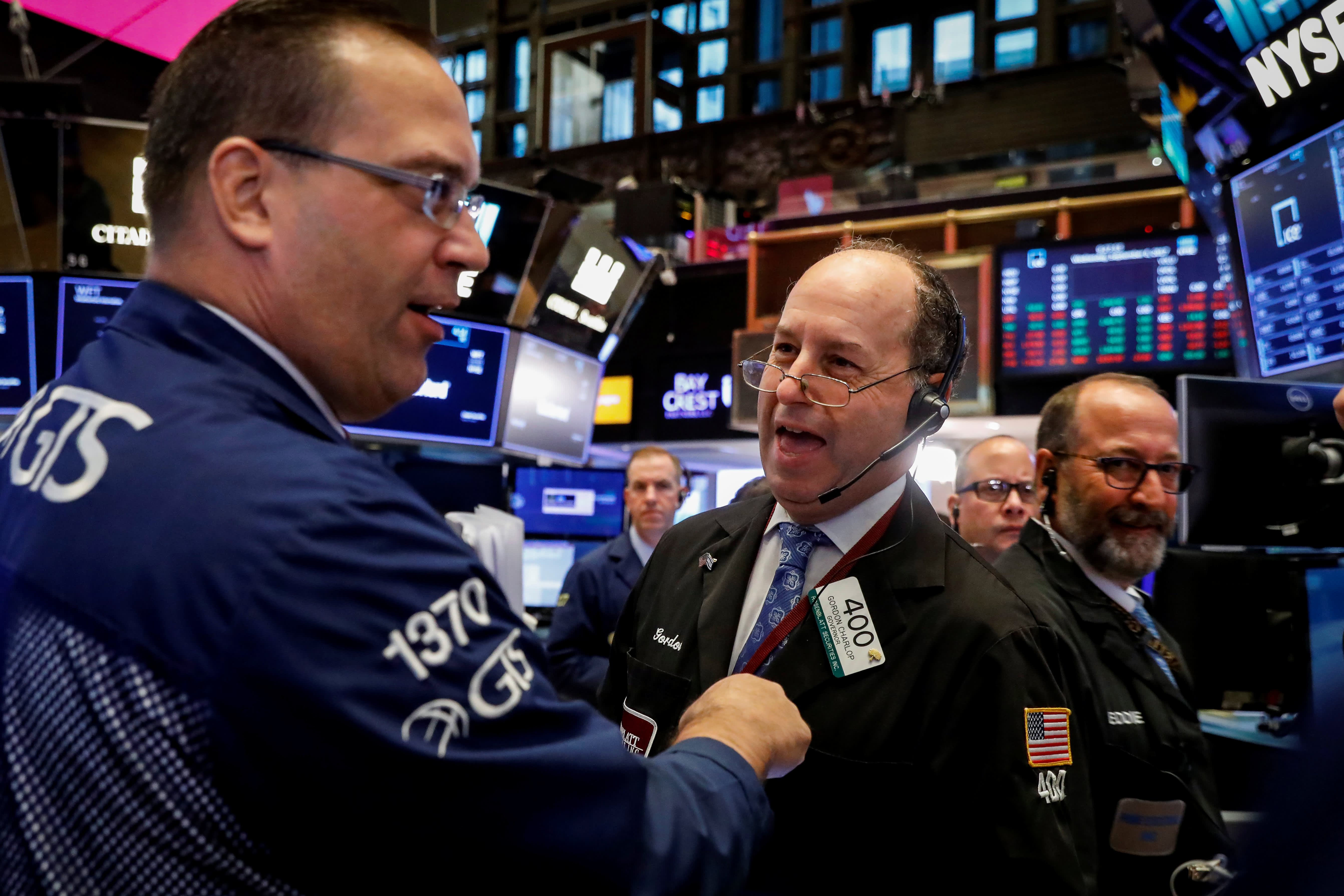
Stock valuations that are objective tend to satisfy traditional investors, yet Wall Street is running a different playbook at the moment, CNBC’s Jim Cramer said Thursday.
“The bottom line is that amazingly and, yes, counterintuitively, buy high and sell higher is working here. Buy high and not selling is the best,” the “Mad Money” host said. “It’s a virtuous circle, with subjective assessments of the coronavirus fueling these subjective growth stock valuations. I bet it keeps going until the outbreak runs its course.”
His comments come after the major stock averages all declined, with the Dow Jones Industrial Average dropping 128 points to 29,423.31, as investors digested a dramatic spike in new coronavirus cases in China. The market had risen in prior days as more positive data related to the outbreak came out.
“That’s what this market has devolved into: a two-track affair that’s bounded by highly subjective judgments about earnings, and it’s all colored by an epidemic in China that’s going global,” Cramer said.
While most stocks continue to rely on traditional valuations — that is, fundamentals and estimates — others can rally on subjectivity, Cramer said, going on to bring home his argument by contrasting the stocks of Caterpillar and Tesla.
In the morning, a Goldman Sachs analyst upped the stock of Caterpillar to buy from neutral and increased its price target, citing low inventories and production cuts that can boost future earnings. The firm projects 20% upside in the equity.
Cramer, however, thought the assessment missed the mark.
“To me, this was a very dicey upgrade, because CAT has to play by the rules of traditional valuations,” he said. “Maybe it can grow a little faster, but ultimately it’s bound by its end markets, and … its most important end market is China.”
In the wake of Goldman Sachs’ premarket upgrade, Caterpillar shares traded relatively flat. The stock closed up 0.09%, about 80 cents off its highest trade of the day.
Caterpillar took a profit hit in 2019 in large part due to the construction machinery and equipment maker’s exposure to China, which engaged the U.S. in a tense trade dispute before agreeing to a partial trade deal. Goldman noted that the slowing Asian economy remains a headwind for Caterpillar, but the analyst found solace particularly in the company’s strategy to continue improving margins.
“So I think you need to sell Caterpillar into the strength from Goldman’s recommendation, which is exactly what we saw today,” Cramer said. “I simply don’t believe it can make the numbers, and therefore the stock will falter no matter where it is, no matter when it occurs.”
Tesla, however, doesn’t play by the same rules, Cramer argued. The electric-car manufacturer, which the host calls a tech company, in the morning announced plans to sell $2 billion worth of common stock, despite CEO Elon Musk’s pledge weeks prior not to raise capital on its rising stock price.
The stock initially sold off before it bounced at $735 a share, reversed course and peaked at $818 in intraday trading. Tesla shares closed the session at $804.
“Tesla’s not like Caterpillar. Its valuation is a lot more subjective, which is how it could rally nearly 5% on this news,” Cramer said, adding, “because Elon Musk needs more capital to meet demand.”
When Cramer turned bullish on Tesla in December, the host noted that the company could raise $2 billion “in a heartbeat.”
“The stock can keep rallying because, unlike Caterpillar, there’s strong demand for their product around the world,” he said.



